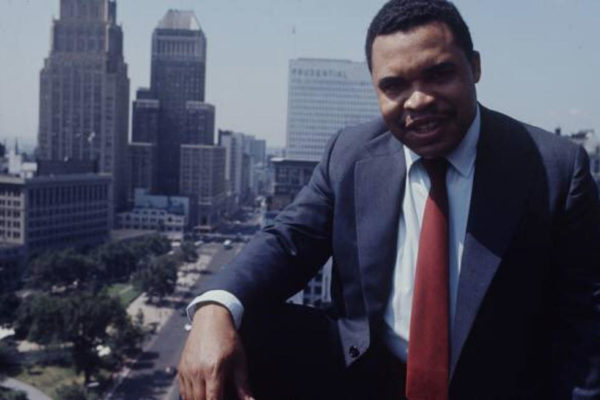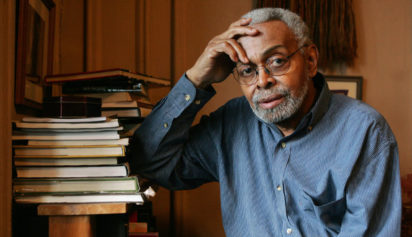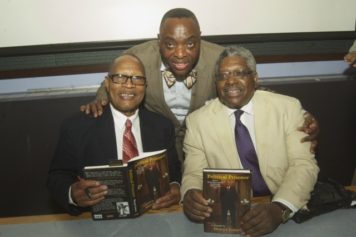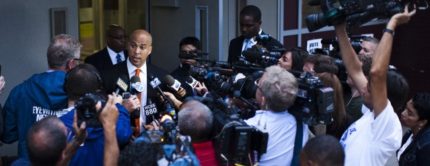NEWARK, N.J. (AP) — Ken Gibson, who became the first black mayor of a major Northeast city when he ascended to power in riot-torn Newark almost five decades ago, died. He was 86.
NJ.com reported that Gibson, who died Friday, served as the city’s mayor from 1970 to 1986, helping establish a foundation for black political power.

Former Newark Mayor Ken Gibson/ via Twitter
“He always thought that if you could help somebody, then that’s what you should do,” his wife, Camille Gibson, told NJ Advance Media. “That’s what he thought being the mayor was. He was very happy to do that.”
Elected three summers after the devastating 1967 riots, Gibson is credited with stabilizing the city’s finances and improving the health of citizens.
“He gets a lot of credit for holding things together when things could have easily fallen apart,” said the late Bob Curvin, who spearheaded Gibson’s 1970 campaign and later directed the Ford Foundation’s Urban Poverty Program.
Born in 1932, Gibson spent his early years in Enterprise, Alabama, and came to Newark with his family when he was eight years old. He attended Newark College of Engineering, now the New Jersey Institute of Technology, and worked as an engineer for the Newark Housing Authority.
A 1966 run for mayor was unsuccessful but garnered 15,000 votes. The riots occurred the following year, and following his 1970 election he became a national spokesman on the plight of America’s cities, featured on the cover of Time magazine and in 1976 becoming the first African-American elected president of the U.S. Conference of Mayors.
Gibson ran unsuccessfully for the Democratic nomination for governor in 1981 and 1985. In 2002, he pleaded guilty to tax evasion and was sentenced to three years of probation.
Speaking to NJ Advance Media in 2017 during the 50th anniversary of the Newark riots, Gibson said he was seeing the city’s reputation finally recover.
“The city’s rep really got to be bad because of the disturbances in ’67,” Gibson said. “Trying to overcome that is very difficult. It never goes completely away. It gets better, though,” he said from his home.
Camille Gibson called him a good husband and father, and “probably the best, sweetest and nicest man that anybody could know and love.”
“I haven’t spent a day without that man in 40 years,” she said. “I just don’t know how I am going to get through it, either.”


